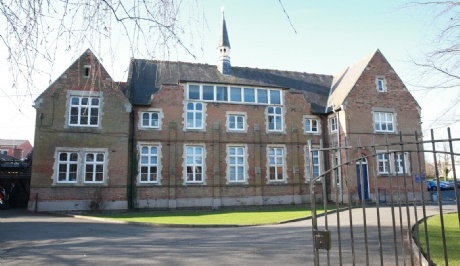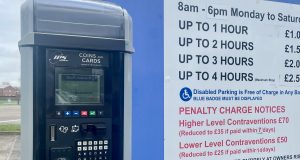A new generation of grammar schools should not be implemented in South Holland, according to at least one secondary school headteacher.
Prime Minister Theresa May wants to see the ban on new grammar schools lifted and a shake-up of the selection process for pupils. This, she says, will “give every parent access to a good school place for their child”.
Here in Lincolnshire, where the selective system is already prevalent, there are 15 grammar schools and one bilateral school with a grammar school stream.
South Holland has two grammar schools (both in Spalding) and Steve Baragwanath – principal at University Academy Holbeach – is against any change. He insisted that school funding being reduced in real terms in recent years and a teacher recruitment crisis were more pressing issues to address.
He said: “Lincolnshire already operates in a selective system. I do not believe that it should be expanded in South Holland, as there is already a very high level of selection (30%) – this is compared to the 10-20% apparently being discussed at the moment.
“I remain concerned of what is going to be done for the remaining (majority) children not selected for Grammar Schools in any new system, I have not heard of any comment about this.
“It should be remembered that every new grammar school will of necessity create additional secondary modern schools in each area, as they draw a significant proportion of those more able pupils away from the non-selective schools.
“It does not matter that they are now called ‘academies’, their intake will no longer be comprehensive (i.e. a mix of students of all abilities) and their students will have prior attainment less than the national average. From what I have been able to gather from Mrs May’s proposals so far, I see it is suggested that all “new grammars” will be required to find a university to support them. We are fortunate that this is already the case with UAH.
“School funding has reduced in real terms in recent years and there is teacher recruitment crisis. I am more concerned about what is going to be done to redress these more serious issues for all pupils and all schools.”
For the Rev John Bennett, chairman of governors at Spalding Grammar School, the most important aspect of Mrs May’s speech was that grammar schools should attract more pupils from disadvantaged backgrounds.
“Bright youngsters from poor families benefit the most from the challenging expectations that are central to this sort of school.
“In Lincolnshire parents and children choose whether to take the 11-plus test for admission to a grammar school. From meetings I have attended with primary school headteachers it is clear that very few of them specifically encourage able children to take the test and so it relies on parents to take the initiative. For a variety of reasons, among them a misplaced perception by parents that grammar schools are only for ‘posh’ children, those from poorer backgrounds are less likely to take the 11-plus and so they miss the opportunity to have the education best-suited to their needs.
Mr Bennett said the governing body has “strongly supported” the school’s senior management in building links with primary schools, especially those in the more deprived parts of the district.
He added: “”I am keen for all schools to provide the best education they can for the young people who attend them and to work together in the best interests of the students and the communities we serve.”
Spalding High School has also been involved with the joint transition project with South Holland’s feeder schools.
Headteacher Michele Anderson said: “The Prime Minister’s proposals and her passionate commitment to a meritocratic society, where the best academic education is available to all regardless of their background, is surely right. The Prime Minister rightly stated that in grammar schools, ‘the attainment gap between rich and poor pupils is reduced to almost zero’ and that ‘they provide a stretching education for the most able, regardless of their background, and they deliver results’. However, I am keen to see more of the proposals for expansion and selection and how they will be implemented on a national scale.
“What is perhaps more crucial than the debate about selection or expansion of grammars is the overdue debate and resultant action needed to ensure that all children have access to the best education possible irrespective of their background and geographical location. This will only come, in my opinion, with improved, fairer funding and a commitment by central government to recruit and retain top quality teachers and senior leaders at the chalk face of schools. I am sure many headteachers across the regions were disappointed to note for example that the national fairer funding of pupils has been deferred for a year. Schools would also benefit from a period of stability in DFE policies and dictate.
“The three town secondary schools have been working very closely over the last two years with our feeder schools as part of our joint transition project. This has focused on providing access to specialist rooms and teachers for year 4 and 5 pupils. I certainly feel that this has helped pupils, parents and schools understand the grammar and non-selective school system more clearly.
“The High School is perhaps not a “typical” grammar school. We have always had more PPG (pupil premium grant) and free school meal students than most other grammar schools and our intake is far broader than most grammar schools.
“Each year more than 80% of our Year 13s take up university places, many the first family member ever so to do. We are committed to ensuring that all of our students do as well as they possibly can and are best placed to take their next step in life.”
 The Voice of Spalding and South Holland
The Voice of Spalding and South Holland




